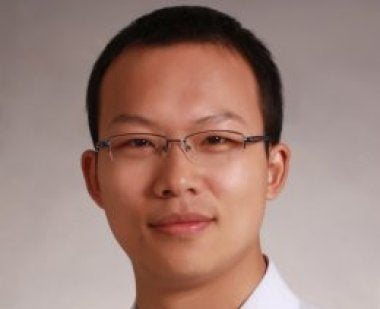
Jing Liu, Ph.D., assistant professor of education policy at the University of Maryland College of Education, was named today as one of 30 winners in the Learning Engineering Tools Competition, a search for promising new and improved ideas, technologies and platforms that will help maximize student learning. Liu will receive $250,000 to develop M-Powering Teachers (MPT), a machine learning tool for mathematics instruction measurement and feedback.
“I am excited about the opportunity to participate in a two-year project that will address a critical issue in how we measure and improve teaching quality,” said Liu. “If we can provide teachers with more timely, precise, and actionable feedback, we can then develop and implement efforts that truly help accelerate student learning, especially for underserved student populations.”
According to Liu, MPT has the ability to change the way K-12 teachers receive formative feedback. Teacher observations in the U.S. are infrequent and only provide teachers with limited information about the strengths and weaknesses in their instruction. These observations are conducted once or twice a year by a human rater and are known to be an expensive and labor intensive process. With MPT, teachers can receive more frequent feedback on their teaching. Teachers will eventually be able to use an electronic device to collect audio of their classroom teachings. The audio would be uploaded to an app, which would not only provide feedback on mathematics instruction but offer resources to help improve their teaching as well. Additionally, researchers would be able to replace or augment human scoring to help scale learning designs more quickly and efficiently.
“Dr. Liu’s work on MPT is a great example of innovation in education,” said Kimberly Griffin, interim dean, UMD College of Education. “His use of technology and collaboration with others will undoubtedly help advance the field of learning engineering.”
MPT uses natural language processing to analyze recordings of mathematics instruction in order to provide information on a student’s understanding of mathematical fundamentals, teacher-student mathematical language, and equity-centered classroom practices. The learning tool is being developed in partnership with Heather Hill, Hazen-Nicoli Professor of teacher learning and practice at Harvard University, and Dora Demszky, doctoral candidate in linguistics at Stanford University, and learning technology companies.
“Natural language processing provides a powerful way to show how students engage in mathematical reasoning,” said Francine Hultgren, chair, Department of Teaching and Learning, Leadership and Policy at UMD College of Education. “This tool will contribute significantly to teacher education programs in mathematics education."
The edtech competition received more than 800 entries from 60 countries, with prizes ranging from $50,000 to $250,000 per team. Prizes were granted to teams across four educational categories:
- Accelerated learning in literacy and math. Tools that help students achieve or exceed proficiency in grade-level literacy or math skills.
- Transform K-12 assessment in both cost and quality. Tools that improve the quality of assessment to better meet the needs of educators, students and families while reducing the time or cost to develop or administer them.
- Facilitate faster, better, and cheaper learning science research. Tools that accelerate learning science research by facilitating A/B testing and RCTs, improving research design, promoting replication, or releasing knowledge/data for external research.
- Drive improvement in adult learning. Tools that increase effectiveness or reach post-secondary education or skill training to prepare adults for the changing economy.
In addition to receiving a prize, the winning teams will share insights and valuable datasets from their work with other researchers committed to improving learner outcomes and better understanding learning science.
“By leveraging key advances in computation, this group of winners will help solve some of ourNation’s biggest education problems,” said Kumar Garg, vice president of partnerships at Schmidt Futures. “It is energizing to work with organizations, which have the potential to dramatically improve outcomes for so many students at scale.”
The Learning Engineering Tools Competition is supported by Schmidt Futures, Citadel Founder and CEO Ken Griffin, Walton Family Foundation, Siegel Family Endowment, Overdeck Family Foundation, and the Bill & Melinda Gates Foundation. The competition was administered by Georgia State University and The Learning Agency.



